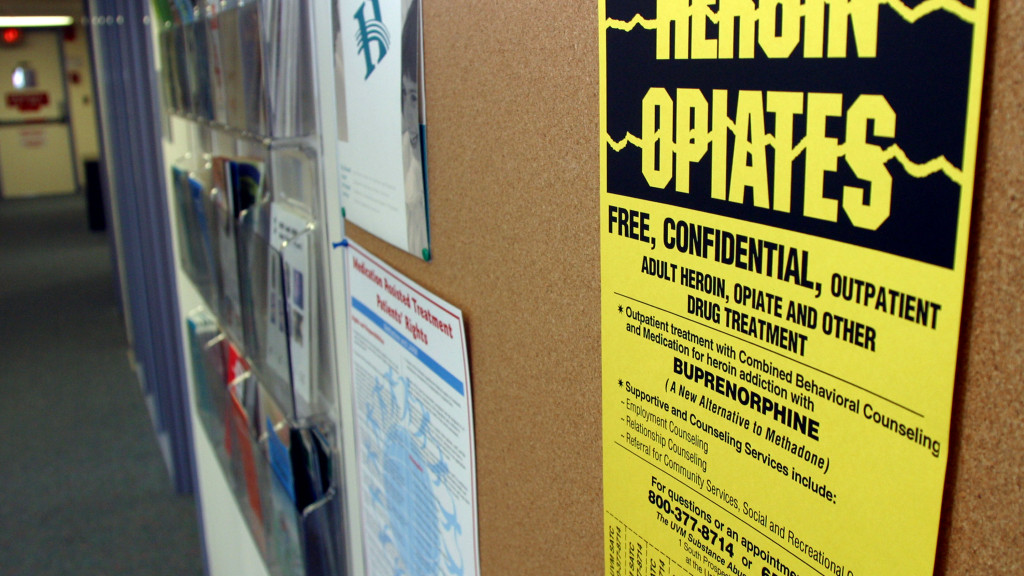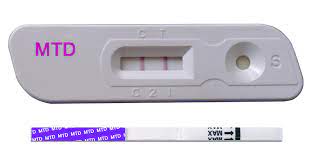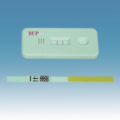Monitoring for opioid-related problems, largely through urine drug testing, has become a central component of risk mitigation in long-term opioid therapy. Many people with addictive disorders go to hospital emergency rooms because they’re in crisis. Most hospitals provide an evaluation and assess the patient’s primary need and then connect him or her to the right treatment that best addresses their unique needs.
Many general hospitals don’t admit patients solely for withdrawal or substance abuse treatment unless there is some other factor such as a significant other medical problem presents. Opiate dependence is a brain-related medical disorder that can be effectively treated with significant benefits for the patient and society.
Substance use disorders can be best treated on an outpatient therapy basis, or in an inpatient program dedicated to the treatment of people with addiction. Many of these programs use medications to help patients transition from physical dependence on opioids.
What Does MTD Mean On A Drug Test?
Some of the terminologies used in drug testing reports can be confusing because the drugs are represented by color codes and abbreviations. MTD in drug testing stands for Methadone a category of drugs called opioids. German doctors created it during World War II. When it came to the United States, doctors used it to treat people with extreme pain. Methadone changes the way the brain and nervous system respond to pain so that patients feel relief. Its effects are slower than those of other strong painkillers like morphine. It also blocks the high from drugs like codeine, heroin, hydrocodone, morphine, and oxycodone. It can give a similar feeling and keep people from having withdrawal symptoms and cravings. Methadone maintenance treatment has been used to treat opioid dependence since the 1950s. The opioid-dependent patient takes a daily dose of methadone as a liquid or pill. This reduces their withdrawal symptoms and cravings for opioids.
Clinical opinions about how long methadone stay in your system vary anywhere from 2 days to up to 13 days. While methadone is typically processed out of your system within two weeks, traces of the drug can show up for much longer, depending on the type of drug test used. Employers, addiction treatment programs, athletic organizations, and law enforcement officials may all request methadone drug tests.
While standard drug tests often test for opioid use, such as heroin, codeine, and morphine, they do not pick up on methadone use. Because of this, specific and more costly tests must be used if the drug test is screening for methadone use. Urine, saliva, hair, and blood tests have all been developed to test for the presence of methadone in the system.
Methadone is addictive, like other opioids. However, being on methadone is not the same as being dependent on illegal opioids such as heroin:
- It is safer for the patient to take methadone under medical supervision than it is to take heroin of unknown purity.
- Methadone is taken orally. Heroin is often injected, which can lead to HIV transmission if needles and syringes are shared.
- People who are heroin-dependent often spend most of their time trying to obtain and use heroin. This can involve criminal activity such as stealing. Patients in methadone do not need to do this. Instead, they can undertake productive activities such as education, employment, and parenting.
Methadone has been included on the World Health Organization’s List of Essential Medicines. This highlights its importance as a treatment for heroin dependence.
What is a Methadone Clinic?
A methadone clinic is a clinic for the dispensing of methadone (Dolophine), a schedule II opioid analgesic to a person who is addicted to opioid-based drugs, such as heroin or prescription painkillers.
What Does a Methadone Clinic Do?
The main focus of methadone clinics is the elimination or reduction of opioid usage by placing the patient on methadone which is a long-acting opioid that blocks the effects of opiate pain medications, including morphine, codeine, oxycodone, and other semi-synthetic opioids. According to the Journal of Addiction Science & Clinical Practice, the purpose of methadone treatment works to restore a normal chemical balance within the brain while supporting damaged neurotransmitter-producing cells. Once the brain’s chemical environment stabilizes, a person starts to feel normal again in terms of his or her emotional and psychological well-being.
All methadone clinics in the United States are strictly regulated by state and federal laws and administer methadone as a pill, in liquid or wafer forms. A common term for this type of treatment at a methadone clinic which must be prescribed by a doctor is known as is “replacement therapy”. Although considered successful as a treatment method it is not a cure for addiction issues and the use of this maintenance treatment is often viewed as controversial in many quarters. The American Journal of Psychology says the DSM-5 manual, which doctors use to diagnose mental health disorders, describes methadone as a safe substance for treating substance use disorders.
How Much Does It Cost to Go To A Methadone Clinic?
Methadone clinics could either be public or privately owned. In either case, they both come under the same strict regulations that guide their operations (inpatient and outpatient levels of care). While not restricted to adults, this treatment method is generally not considered for people under the age of 18. In 2013, due to the strict changes in receiving prescription pain medication as well as decreases in prescription abuse, the requirements to be accepted into methadone clinics have changed in areas such as New York State. The average cost of a non-hospital-based residential Methadone treatment program is $76.13 per day per person, while persons visiting a Methadone clinic on an out-patient basis should expect to pay an average cost of $17.78 per day per person. According to a survey conducted by the Substance Abuse and Mental Health Services Administration, nearly 245,000 people were admitted into opiate treatment programs in 2010. More than half of those admitted required maintenance and detoxification services. About 22 percent were individuals seeking only maintenance treatment. Methadone was the primary medication given to those in treatment; the survey reported nearly 270,000 people receiving methadone in March of the following year. READ: How Long Does Suboxone Strips Stay In Your System
Who is Eligible for Methadone Replacement Therapy?
The first step in getting methadone maintenance is to get assessed in a clinic by a methadone doctor. Anyone seeking help for opiate addiction can receive an assessment for methadone maintenance although there may be limitations to what the clinic will be able to do for you especially public methadone clinics with limited budget.
In General, assessment for methadone maintenance involves providing accurate and up-to-date information about yourself to the staff members of the clinic. If you are not completely honest about other drugs you are using, you could be placing yourself at risk for an accidental overdose. Required information includes:
Demographic information (age, sex, date of birth).
Medical history: including any diseases transmitted through sexual intercourse or through shared needles.
Psychiatric history: including mental health disorders such as anxiety, depression, and psychosis.
Risk assessment: including information about past or present thoughts of suicide or suicide attempts.
Past and current drug use: this may include a detailed report of the drugs that you have used in the last month up to one year.
History of withdrawal symptoms (experienced currently or in the past).
In addition to the information above, it is particularly important to be honest about your use of other central nervous system depressants, such as: benzodiazepines, barbiturates, and sleep medications (e.g., Ambien) alcohol, and other opiates.
How does Methadone Clinics Operate?
Methadone clinics will not provide you with methadone maintenance without your complete and voluntary informed consent. The consent process will include you signing that you understand the facility services, procedures, rules, and expectations. By signing, you agree to conduct yourself in the manner outlined by the facility. However, in cases where you are considered a risk to yourself or others and are referred to a 72-hour hold, your right to willingly provide treatment consent is lost and treatment can commence without your consent.
Methadone clinics work in such a way that on the day of your initial assessment, you will probably receive your first treatment as long as you are eligible and there are no persons on the waiting list. Your initial dosage will not exceed 40 mg methadone but will be slowly increased over the next few weeks with a final dosage goal of anywhere from 80 to 120 mg under close supervision. Once clinic staff and ‘’Methadone Doctors” are satisfied with your progress you will transition to outpatient treatment who visits the clinic every day to receive your supervised daily dosage. Based on your level of commitment and sincerity in the methadone, the methadone facility may entrust you with dosages of up to 4 weeks at a time. The duration of methadone treatment ranges from a few months to several years, or even lifelong.
Some clinics also offer short- or long-term detoxification services to their patients using methadone in combination with cognitive behavioral therapy and other medications such as buprenorphine used to reduce cravings, naltrexone, a non-addictive substance, that blocks the effects of opioids and the injectable form of naltrexone, known as Vivitrol, that is administered monthly rather than daily like most other opioid treatment drugs.
Factors That Affect Duration of Methadone Treatment
Several factors affect methadone treatment duration most of which are related to your history of drug use and current state. These factors include:
- Length of opiate abuse, as in months, years, or decades
- Addiction severity
- The presence or absence of mental health problems, such as depression, anxiety, or bipolar disorders
- Physical health status
- Motivation level
- Whether or not a person has a strong support system in place
- Stable vs. unstable home environment
Side Effects to Expect During Methadone Treatment
Although carefully monitored dosages of methadone are legally and medically acceptable, methadone is still an opioid agonist drug like heroin or opium. It is important to recognize that, while methadone is a milder drug, it is still a narcotic with a high chance of addiction and dangerous side effects. When a person takes methadone in any form, they run the risk of experiencing a host of dangerous effects, which can cause both physical and psychological harm. The side effects of methadone include:
- Drowsiness
- Dry mouth
- Feeling lightheaded
- Urinary retention
- Sexual impotence
- Labored or shallow breathing
- Chest pain
- Rapid heartbeat
- Confusion
- Hallucinations
- Muscle tremors
- Nausea/vomiting, Diarrhea and Abdominal cramps
How to find the Right Methadone Clinic Near You
In many parts of the United States, methadone clinics are few and far between, which presents problems for addicts seeking methadone treatment who live far from a clinic. By simply typing ‘methadone clinic near me’ on a search engine, a number of online resources for finding local methadone clinics will pop up but finding the right one could be much harder. One way you can find the right methadone clinic is by searching state or city-wise and principally by reading customer reviews on methadone clinics. Another reliable method you can get the required help in locating the right methadone clinic for you is by referral.
Public methadone clinics are generally cheaper to attend. However, they are usually crowded with a long waiting list due to limited funding. The private methadone clinics, on the other hand, are more expensive to attend but usually have either a short or no waiting list with a more personalized form of care. Other methadone clinics cater for specific demographic groups such as gender or religion to maximize the comfort of their clients.
Canadian Methadone Treatment Centers
Ontario Addiction Treatment Centre
No reviews · Medical Clinic
Bracebridge, ON, Canada · +1 705-645-1677
Opens 8:30 AM Fri
OATC Vanier Clinic
Addiction Treatment Center
Vanier, ON, Canada · +1 613-749-9666
Opens 8:30 AM Fri
Methadone Clinic & Pharmacy
Addiction Treatment Center
Toronto, ON, Canada · +1 416-241-5281
Open ⋅ Closes 6:30 PM
Ontario Addiction Treatment Centre
Medical Clinic
Bracebridge, ON, Canada · +1 705-645-1677
Opens 8:30 AM Fri
To find a Methadone Clinic Near me click on either of the site below;
Clinic Location Finder Site 1
Clinic Location Finder Site 2
Public Health Nigeria an Interdisciplinary public health movement focused on health education, advancing fair public health policies, promoting fitness, healthy diets, responsible behavior, community health and general well-being.










